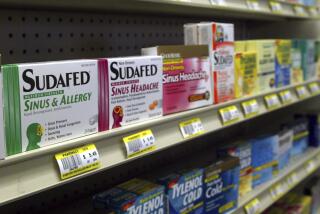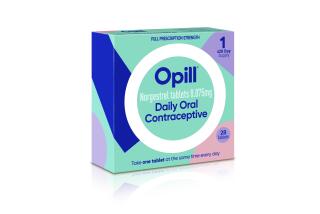Sneezy, stuffy, aching kids
- Share via
The makers of over-the-counter cough and cold medications have been formulating more than syrups and pills lately. They’ve also been manufacturing a tangled message about their products for children.
The medicines are perfectly safe and effective for children younger than 2, the industry announced at the beginning of this month, yet at the same time it recommended that labels on pediatric formulations be changed from “Ask Your Doctor” to “Do Not Use” for these youngest cold sufferers. And it continued to sell infant formulas targeted to that very group.
The message finally became clear last week when drug makers pulled infant medications off store shelves.
Pediatric cough and cold remedies don’t appear to be remedies at all. Research indicates that they are no more effective than a placebo for children under 12. The doses on the labels are little more than educated guesswork, extrapolated from adult doses. And overdoses are common for a number of reasons -- among them that frustrated parents tend to keep giving their kids more medicine when the recommended dose doesn’t work.
It’s heartening to see this first step toward protecting the youngest patients, those most sensitive to overdose and side effects from medication. It’s also well timed. But it’s not enough.
The U.S. Food and Drug Administration is scheduled to consider tough regulatory measures on children’s medications this week. An FDA safety panel is urging the agency to ban the over-the-counter formulations for children up to 6 years old. The FDA shouldn’t let itself be swayed toward leniency by the pharmaceutical companies’ recent capitulation on infants.
The industry is right in saying that the medications are generally safe for children. But medicine has to be more than generally safe; it’s supposed to work. There’s no point in using, or allowing, a product whose only real benefit is that it accounts for $2 billion a year in sales for its manufacturers.






